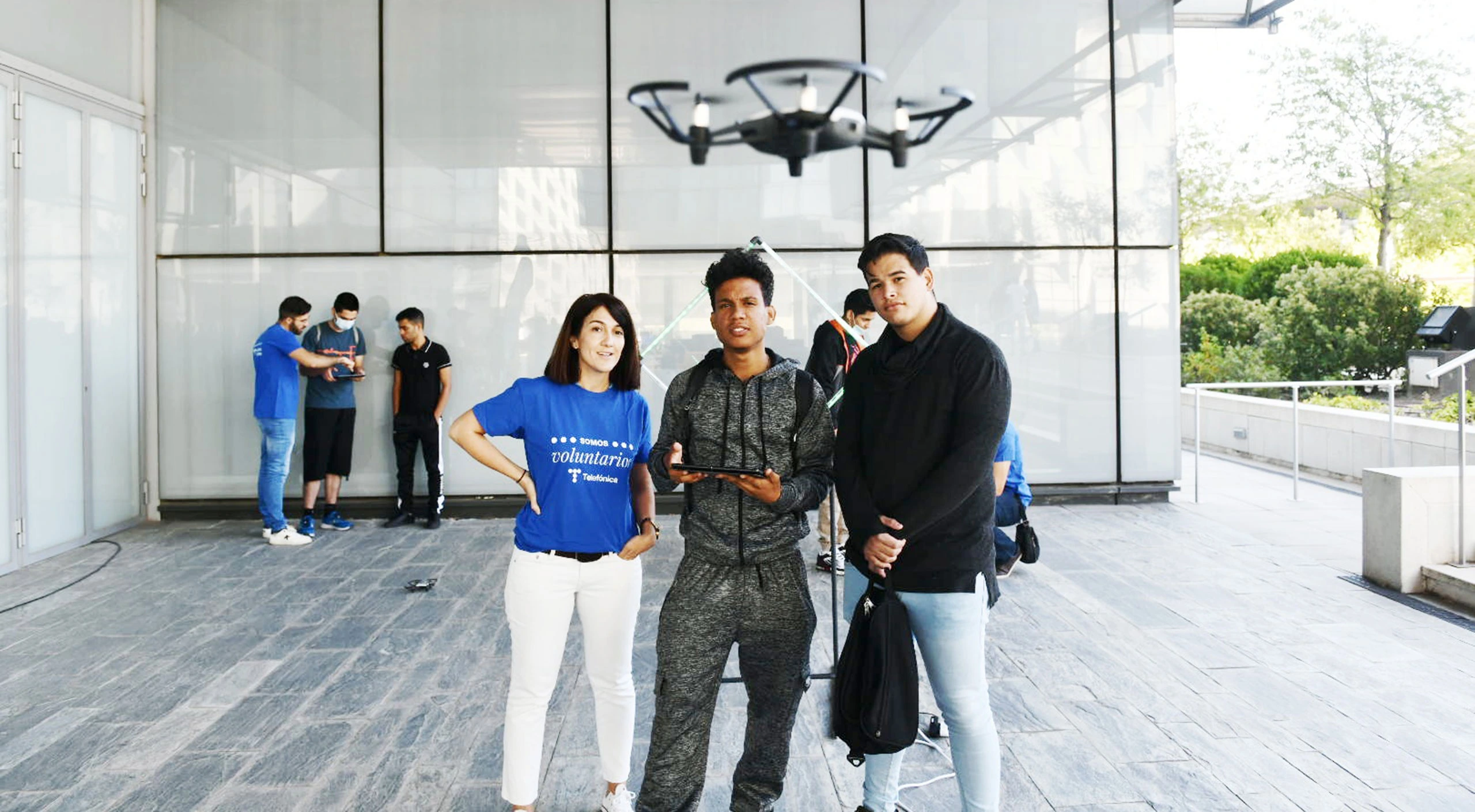05.09.2025
Drones and Robots: Rising Technological Trends
Drones and Robots: Rising Technological Trends

Not long ago, talking about drones or robots seemed like something from the future or straight out of science fiction films. However, today they are part of
everyday life in such diverse sectors as IT, logistics, and industrial maintenance What was once exclusive to laboratories has now become a reality, driving new
ways of working and creating entirely new professions.
From being a professional drone pilot to programming robots that automate tasks, the job market is demanding increasingly specialised technical profiles.
And with this demand, new opportunities for training and professional development arise for those who want to change their career path or improve their employability.
The job market is demanding increasingly specialised technical profiles.
New Professional Profiles
Among the most sought-after roles is that of the professional drone pilot. These are specialists who not only need to know how to operate a drone, but must also be familiar with and comply with current aviation regulations, plan flights, interpret data collected by sensors, and integrate the results into technical environments (such as GIS or BIM systems). In many cases, they also work alongside engineers, surveyors, architects, or data analysts.
However, this new profession goes well beyond simply flying drones. There is also a demand for qualified individuals who can assemble, maintain, and repair drones, as well as specialists in embedded software, computer vision, or integration with artificial intelligence.
Robotics has become a key component in the modernisation of industry. No longer limited to large factories, robots can now be found in assembly lines, intelligent warehouses, and even maintenance tasks. This evolution has generated high demand for technicians and engineers who can design, programme, and maintain these systems. The most sought-after profiles combine knowledge of automation, electronics, PLC programming, and machine vision.
To access these jobs, a university degree is not always required. There is an increasing range of technical and vocational training pathways adapted to the real needs of the market. A good example is the Profesionales 4.0 programme, available free of charge on our online platform Conecta Empleo.
All indications are that demand for specialists in drones and robotics will continue to grow over the coming years. Spain is already one of the European countries with the highest number of registered drone operators, and sectors
such as energy, agriculture, and logistics continue to adopt new technologies to automate processes. If you are interested in taking a professional step towards drones or robotics, consult our Employment Map to find out which are the most in-demand professions and digital skills, among which is the role of robotics engineer.
Professional Skills and Salaries
Robotics professionals must master a set of highly specific technical competencies spanning hardware, software, and programmable logic controller (PLC) programming, such as:
- PLC programming (Siemens, Omron, Schneider)
- Design and simulation of robotic systems (ROS, MATLAB, Simulink,
SolidWorks) - SCADA and HMI systems (industrial monitoring and control)
- Industrial communication protocols (Modbus, EtherCAT, CAN, OPC UA)
On the other hand, drone specialists require a technical skillset ranging from aviation regulations and the operation of unmanned aerial vehicles to the planning of automated flights:
- Calibration of GNSS systems
- Integration of advanced sensors (RGB, LIDAR)
- Programming of autonomous flights and embedded control logic
Individuals opting for this type of technical specialisation not only enhance their professional profile, but also gain access to jobs with attractive working conditions. According to Tecnoempleo, an industrial robotics technician can earn over €30,000 per year, especially within international companies or positions of responsibility.
Whether you come from a technical background or are undergoing a career change, you have access to free, high-quality specialised training, such as that offered by Conecta Empleo, which prepares you for the real challenges of the job market. The ‘Technologies 4.0’ course, for example, is ideal for beginners in areas such as robotics and other emerging technologies such as Blockchain, 5G, and Artificial Intelligence. In addition, platforms like Tecnoempleo allow you to take the next step and find job opportunities aligned with your profile, knowledge, and interests.